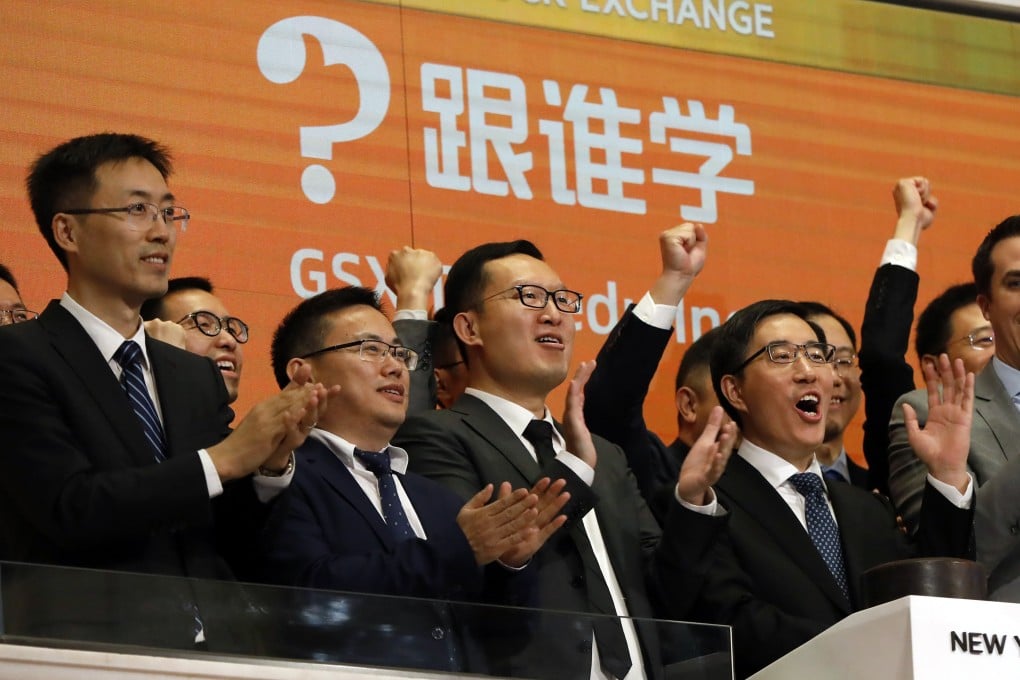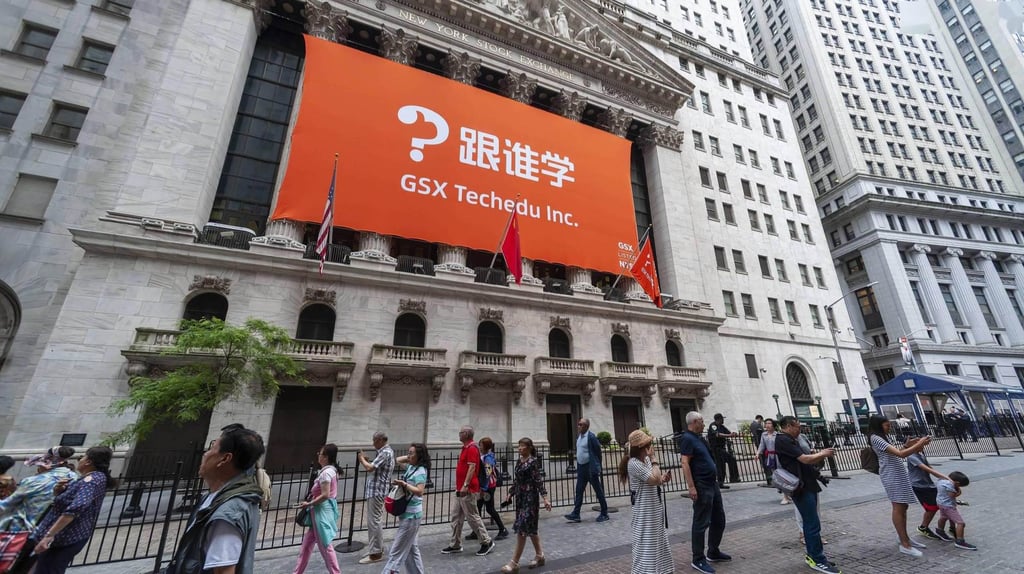Archegos meltdown: How a series of unfortunate events dragged down a Chinese tutoring firm’s shares
- GSX Techedu is caught in a Wall Street stock sell-off, as Achegos Capital Management dumps its assets
- Once-profitable GSX posted losses in 2020, while facing increased regulatory scrutiny over online education in China

The Chinese company’s share price fell 52 per cent in the past two trading days, on Friday and Monday, after a series of margin calls involving Archegos Capital Management.
While a slew of other well-known stocks – including Chinese companies Baidu, Tencent Music, Vipshop and iQiyi, as well as blue-chip US firms ViacomCBS and Discovery – also suffered from the sales, GSX experienced the steepest fall in share price.

The company’s stock dive on Friday reflects “concerns over the Chinese government’s upcoming policies regarding K-12 training in China, as well as worries about US-China relations”, GSX founder and CEO Larry Chen Xiangdong wrote in a letter published by Chinese news portal Sina.com.
“But the most important reason is that a US fund has made huge losses and had to sell off all its GSX shares,” he added, while citing Warren Buffett and Benjamin Graham, the gurus of value investment, to play down the price fall as a short-term fluctuation.
GSX did not immediately respond to inquiries sent by the South China Morning Post on Tuesday.
Until recently, GSX’s share price has largely defied controversies since it went public, including attacks by short sellers. Despite the recent sell-off, its closing price of US$32 on Monday was still about three times its initial-public-offering price in June 2019.